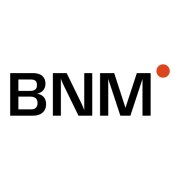Best Debt Capital Markets Lawyers in Republic of Lithuania
Share your needs with us, get contacted by law firms.
Free. Takes 2 min.
Or refine your search by selecting a city:
List of the best lawyers in Republic of Lithuania
About Debt Capital Markets Law in Republic of Lithuania
Debt Capital Markets (DCM) refer to financial markets where entities such as companies, banks, or public bodies raise funds by issuing debt instruments, including bonds and notes. In the Republic of Lithuania, the DCM landscape has grown steadily, particularly since the country’s accession to the European Union. Lithuania offers issuers and investors a robust legal framework harmonized with EU regulation, making it an appealing jurisdiction for local and cross-border DCM transactions. The Lithuanian Central Bank, the Bank of Lithuania, plays a crucial role in regulating, supervising, and fostering transparency within these markets.
Why You May Need a Lawyer
Engaging a lawyer who specializes in Debt Capital Markets can be beneficial for a variety of reasons. Common situations include issuing or underwriting bonds, advising on regulatory compliance, navigating disclosure requirements, or dealing with cross-border investments. Legal assistance is essential for:
- Drafting and reviewing prospectuses, information memorandums, and other offering documents.
- Ensuring compliance with Lithuanian and EU securities regulations.
- Structuring debt instruments to achieve optimal tax and legal efficiency.
- Negotiating terms with counterparties, underwriters, or investors.
- Handling regulatory filings and communications with the Bank of Lithuania and the Nasdaq Vilnius Stock Exchange.
- Advising during distressed situations, restructurings, or defaults.
Local Laws Overview
Debt Capital Markets in Lithuania are primarily governed by local laws as well as EU legislative instruments. Notable regulations include the Law on Securities, the Civil Code of the Republic of Lithuania, European Prospectus Regulation, and the Market Abuse Regulation (MAR). Key aspects include:
- Issuance Requirements: Public offerings of debt securities require approval from the Bank of Lithuania and may also necessitate preparation and publication of a prospectus that meets EU standards.
- Disclosure Obligations: Issuers must ensure transparency by timely disclosure of relevant information to investors and regulatory bodies.
- Listing & Trading: Debt securities can be listed on the Nasdaq Vilnius Stock Exchange, provided they satisfy both exchange and regulatory requirements.
- Prospectus Exemptions: Certain types of debt issues, such as private placements, may benefit from exemptions to standard prospectus obligations.
- Ongoing Compliance: Issuers must fulfill continuing obligations concerning disclosure, corporate governance and market integrity under both Lithuanian law and EU rules.
- Investor Protection: Lithuanian law incorporates investor protection provisions, including mechanisms for complaints and dispute resolution.
Frequently Asked Questions
What is a debt security?
A debt security is a financial instrument that represents a loan made by an investor to a borrower, typically a company or government, which is obligated to pay periodic interest and repay the principal at maturity.
Who regulates the debt capital markets in Lithuania?
The primary regulatory authority is the Bank of Lithuania, which supervises market participants and enforces compliance with securities laws, often in coordination with the European Securities and Markets Authority (ESMA).
Do I need to publish a prospectus to issue bonds in Lithuania?
In most cases, public bond issuances require approval and publication of a prospectus that complies with Lithuanian and EU regulations, unless an exemption applies (such as a private placement).
Can foreign entities issue debt securities in Lithuania?
Yes, foreign entities can access the Lithuanian debt capital markets, subject to local regulatory approval and compliance requirements, including possible recognition of their prospectus by Lithuanian authorities.
How are debt securities listed for trading in Lithuania?
Debt securities can be listed on the Nasdaq Vilnius Stock Exchange if they meet the listing requirements established by the exchange and relevant regulatory authorities.
What are the tax implications for issuers and investors?
Taxation varies depending on the nature of the issuer, investor, and the type of instrument issued. Both resident and non-resident investors may have different tax obligations. It is advised to consult a tax specialist alongside your DCM lawyer.
What happens in the event of default?
If an issuer defaults on its obligations, investors may have legal remedies under Lithuanian law, including the right to initiate legal proceedings or restructuring processes, in line with the terms of the debt instrument.
What are the typical costs involved in issuing debt in Lithuania?
Costs include legal and advisory fees, regulatory charges, exchange listing fees, and ongoing compliance expenses. The total cost will depend on the complexity and size of the transaction.
How does Lithuania ensure investor protection?
Lithuanian law, harmonized with EU directives, mandates clear disclosure, fair dealing, and provides mechanisms for investor complaints and disputes. The Bank of Lithuania also plays a key monitoring role.
Do Lithuanian debt capital markets follow EU standards?
Yes, Lithuanian laws are closely aligned with EU regulations such as the Prospectus Regulation, the Market Abuse Regulation, and MiFID II, ensuring consistency and investor protection across the EU.
Additional Resources
To further understand Debt Capital Markets in Lithuania, you may find the following resources helpful:
- Bank of Lithuania: National authority offering regulatory guidance and market supervision.
- Nasdaq Vilnius Stock Exchange: The official stock exchange for listing and trading debt securities.
- Lithuanian Ministry of Finance: Issues updates on financial policy and regulatory changes impacting capital markets.
- Lithuanian Bar Association: Can help you locate a qualified lawyer specializing in DCM.
- European Securities and Markets Authority (ESMA): Provides cross-border regulatory updates and guidance.
Next Steps
If you need legal assistance with Debt Capital Markets in the Republic of Lithuania, consider the following steps:
- Clearly define your goals and the type of transaction you are considering (e.g. bond issuance, private placement, listing).
- Gather all relevant corporate and financial information in preparation for due diligence and legal review.
- Identify law firms or legal practitioners in Lithuania who have experience in DCM and are familiar with both local and EU regulatory requirements.
- Schedule a consultation to discuss your project, ensuring all aspects from structuring to regulatory compliance are addressed.
- Seek multidisciplinary advice as needed, including from tax advisors and financial consultants, to ensure the most efficient outcome.
- Remain engaged throughout the process to ensure documentation, approvals, and ongoing obligations are managed effectively.
Legal guidance throughout a DCM transaction is essential in order to protect your interests, ensure regulatory compliance, and achieve a successful outcome in Lithuania’s evolving capital markets.
Lawzana helps you find the best lawyers and law firms in Republic of Lithuania through a curated and pre-screened list of qualified legal professionals. Our platform offers rankings and detailed profiles of attorneys and law firms, allowing you to compare based on practice areas, including Debt Capital Markets, experience, and client feedback.
Each profile includes a description of the firm's areas of practice, client reviews, team members and partners, year of establishment, spoken languages, office locations, contact information, social media presence, and any published articles or resources. Most firms on our platform speak English and are experienced in both local and international legal matters.
Get a quote from top-rated law firms in Republic of Lithuania — quickly, securely, and without unnecessary hassle.
Disclaimer:
The information provided on this page is for general informational purposes only and does not constitute legal advice. While we strive to ensure the accuracy and relevance of the content, legal information may change over time, and interpretations of the law can vary. You should always consult with a qualified legal professional for advice specific to your situation.
We disclaim all liability for actions taken or not taken based on the content of this page. If you believe any information is incorrect or outdated, please contact us, and we will review and update it where appropriate.
Browse debt capital markets law firms by city in Republic of Lithuania
Refine your search by selecting a city.















